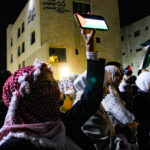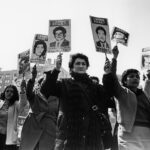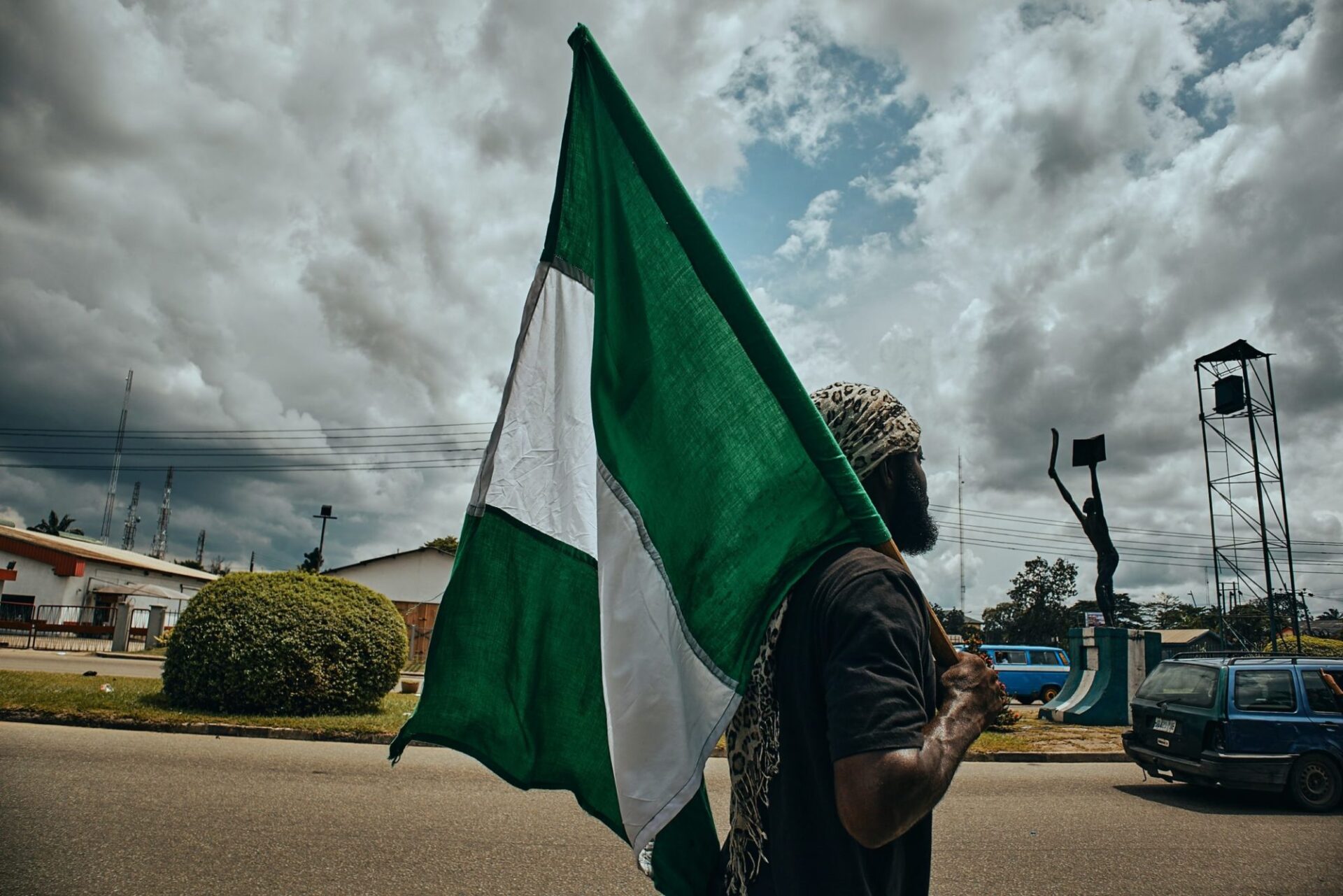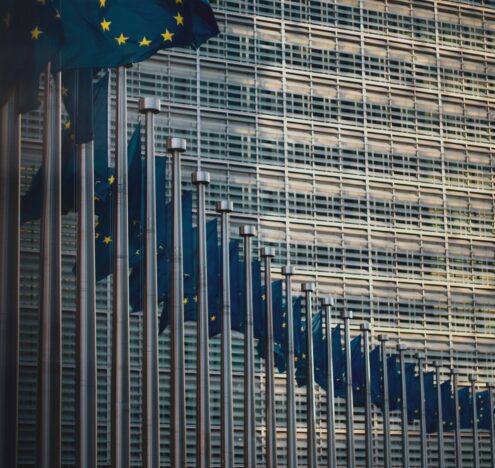Barring last-minute postponement or cancellation – real possible threats — Nigeria’s presidential election will take place on Feb. 25, 2023. It would be the seventh consecutive poll following the restoration of civil rule in 1999 and a significant milestone in the country’s journey toward consolidating its nascent democracy.
Prior to 1999, Nigeria was a poster boy for political crises and instability. At the dawn of independence in 1960, the young country — artificially created for the benefit of the British Crown — was wracked by coups and violent political crises as the post-independence political leaders struggled, and failed, to hold the country together. The ensuing turmoil created a vacuum into which the military brass stepped. The first coup in 1966 led to a pogrom and a 30-month civil war in which 1 to 2 million perished. Democracy was not restored until 14 years later, in 1979. But by 1983, the generals were back in power and would not leave until 16 years later. Cumulatively, there were at least six successful military coups and counter-coups between 1960 and 1999 when the last military ruler left power.
However, the 24 years since then have turned a page in the country’s history. It is the country’s longest stretch of uninterrupted democracy. Within that space of time, important progress has been made in modernizing the economy, reforming governance, and consolidating democracy. However, recent years have seen resentment and anger grow among sections of the population, especially the youth, over the lack of good governance, corruption, and insecurity. According to an opinion poll, more than three-fourths (77%) of Nigerians say they are not satisfied with the way democracy works in the country — an increase in dissatisfaction by 20 percentage points since 2017.
A HIGH-STAKES ELECTION
As campaigns heat up, voters are faced with the herculean task of making a choice among candidates from 18 registered political parties to elect a new president, 109 Senators, and 360 federal representatives for the country’s bicameral legislature. Likewise, 28 governorships out of 36, and 993 assembly seats are up for grabs in a state election billed to take place two weeks later on March 11.
While incumbent President Muhammadu Buhari will not be on the ballot as he has promised to retire on May 29, the elections have become a referendum on his performance. In 2015, Buhari came to power, following three failed attempts, on a mandate to end corruption, grow the economy and deal with insecurity. Eight years after, many believe Nigeria is worse than he met it. However, Buhari has said he is backing his party’s candidate, former Governor of Lagos State, Bola Ahmed Tinubu. Tinubu is an old war horse from the South West of the country whose deft political machinations led to the historic merger between the South and North that led to the founding of the ruling All Progressive Congress (APC) in 2013. Though very popular, he has faced criticism on the campaign trail about the source of his wealth as well as concern over his health and fitness for the coveted office.
The biggest challengers to Tinubu are former Vice President, Alhaji Atiku Abubakar who represents the opposition Peoples Democratic Party (PDP), and Peter Obi of the Labour Party (LP). This is Alhaji Atiku’s sixth attempt to become Nigeria’s president. Atiku, a Muslim and member of the Northern Oligarchy has a large following in the country’s impoverished North but there are concerns that the split in his party may affect his chances. Peter Obi, on the other hand, is a Christian from the South East of Nigeria. He has succeeded in warming himself into the heart of voters with his anti-corruption rhetoric. He also relies on support from the country’s Igbo ethnic group who see in his candidacy an opportunity to overcome their marginalization in the political space. However, aside from the three leading candidates, there are 15 other presidential candidates with differing levels of support. One of them is Omoyele Sowore of the African Action Congress (AAC) who is running for the second time and pledges to form a socialist government focusing on workers’ welfare, free education, job creation, and pension reforms. He has been described as the most fascinating presidential candidate in the election. But in 2019 when he first ran, Sowore could only muster 0.12% of the votes.
A crucial feature of the election is the age of the candidates. Nigeria’s median age is 18.6 years but none of the leading presidential candidates is less than 50 years old, thereby reinforcing the gerontocratic character of Nigeria’s political leadership. Tinubu is 70 years old; Alhaji Atiku is 76 while Peter Obi is 62. Meanwhile, the youth are not just the biggest demography in the population. At 39.66%, they also form the majority of registered voters. Notwithstanding this, for many of the country’s young voters, the Labour Party’s Presidential candidate, Peter Obi represents a new hope. According to Ope Ademilusi, an oil and gas worker and part-time cab driver in the Southern city of Uyo in Akwa Ibom State, Obi represents “an opportunity to break the monopoly of the two big political parties which have ruled since 1999. Even if that is all we achieve, it is progress”.
LANDMINES
As election day draws near, there are palpable fears that the elections could accelerate the violent disintegration of Nigeria. In reality, the polls are taking place in a besieged fortress. In the North East, the 14-year Boko Haram insurgency continues to rage. Likewise in the North Central region, bandits, herders, and farmers conflict and criminal gangs wreak destruction and deaths while the North West is riven by ethnic and religious conflict. In the same vein, the South East is in the throes of separatist agitation and deadly activities of unknown gunmen.
As the election day draws near, there are palpable fears that the elections could accelerate the violent disintegration of Nigeria.
“It is Nigeria’s worst security crisis ever,” Said Oludare Ogunlana, Professor of National Security at Collin College. According to a report, nothing less than 55,430 people have been killed by terrorist groups and criminal gangs operating across the country over the last seven years. In 2021 alone, 3.2 million Nigerians were displaced from their homes, mostly from the North. Over the past 18 months, the situation has further escalated with at least 8,948 Nigerians killed and 7,184 abducted. The situation has led to the biggest internal mobilization of the army since the civil war, prompting fears that the elections could be disrupted at voting centers located at flashpoints of conflict.
The fractious security situation reflects the complex character of Nigeria. Despite over six decades of independence, the country remains divided along tribal and religious fault lines. Referring to the divisions, Ogunlana said they are “landmines that politicians have learned to tiptoe around with care neither to defuse or detonate.” There are unwritten rules that have maintained balance such as most running teams pairing a Christian and a Muslim candidate, and usually the terms alternate between a candidate from the North and South of the country. But there are fears that politicians may have thrown caution to the wind this time around. For instance, both the Presidential and Vice Presidential candidates of the ruling APC are Muslims. This is the first time since 1993 that such is happening. If they win, it could provoke riots from the Christian section of the population over the fear of Islamization. In the same vein, a victory for Atiku of the PDP would likely provoke violent reactions from the South due to the fact that he would be replacing Buhari, another Northerner who has been in power for 8 years. Meanwhile, if Obi loses, the Igbo community may claim the votes were rigged and take to the street. A victory for him will most certainly provoke violent reactions in the North.
Heads or tails, violence seems inevitable, observed Laja Odukoya, Professor of Comparative Political Economy at the University of Lagos. Already, pre-election violence is at an all-time high. According to the country’s National Security Adviser (NSA), Babagana Monguno, Nigeria recorded 52 acts of political violence across 22 states within one month last year. Within the same period, the electoral body, INEC, suffered 53 attacks on its facilities and personnel thereby disrupting voters’ registration while hindering the distribution of the Permanent Voters Card (PVC) in some parts of the country.
Speaking further to Inkstick, Odukoya argued that an uptick in violence could especially be expected if the election is too close to call. Section 134 subsection 2 of Nigeria’s constitution says that a presidential candidate can only be deemed elected if they secure not only the highest number of votes but also a quarter of the votes cast in two-thirds of all the states of the federation and the Federal Capital Territory. If no candidate secures the mandatory threshold, the law says there must be a run-off within 21 days. “With each of the three leading presidential candidates hailing from the three biggest ethnic groups, a run-off is not only very likely, but it also seems certain that such a scenario can lead to violent disputes over the election’s outcome that may put Nigeria’s unity on the line,” Odukoya added.
TOO BIG TO FAIL
Although 24 other African countries are billed to hold crucial elections this year, the situation in Nigeria appears to be the most concerning for the continent, Adeola Soetan, told Inkstick. Soetan heads Democracy Vanguard (DV), a civic group that campaigns for free and fair elections in Nigeria. He explained that Nigeria’s importance flows from the country’s overall size and weight within the region. At over 218 million, Nigeria is not just the most populous country on the continent; it is the country whose collapse is much better imagined than experienced. At the last count, about 93.5 million Nigerians are registered to vote in the coming elections. This is 20 million more than the combined number of registered voters in the 14 other countries that make up the 15-member Economic Community of West Africa (ECOWAS). “Just imagine a scenario of post-election violence leading to a displacement of just 5% of Nigeria’s present population. That is equal to over 10 million people. Such a human mass can easily overrun the surrounding countries which are already at different levels of political instability. It will certainly worsen the situation in the Lake Chad Basin and the Sahel which are experiencing dire humanitarian situations” Soetan added.
Nigeria is also the largest economy on the continent and an important ally in piloting economic reforms, addressing climate change, and fighting terrorism in the region. For instance, Nigeria is a crucial link in a sub-regional crackdown on jihadism which has taken root in the country’s Northern borders and parts of the Lake Chad Basin. Therefore the coming elections are crucial not just for Nigeria but for the continent as a whole. If the elections succeed, it can ensure that Nigeria continues to aid the countries at the center of the Sahel’s spiraling security crisis. It can also reinforce Nigeria’s image as a force of moral example in a region experiencing democratic backsliding and shrinking of civic space on a scale not seen since the 80s.
Since 2010 at least 40 coups and attempted coups have taken place in Africa, with half of them taking place in West Africa. There have been at least six successful coups in the last three years alone which have produced Military juntas, for example in Mali and Burkina Faso, that are showing signs of hostility towards Western interests. Last year, Bamako kicked out French troops and brought in Russian mercenaries to aid in the fight against jihadism in a historic move that could see Putin’s footprint increase and democratic values erode in the region.
The survival of democracy in Nigeria might be the game-changer West Africa needs, Soetan argued, but this would not be the case if the 2023 general elections fail. Most certainly, a violence-ridden election risks undermining the progress Nigeria has made since the country returned to democratic rule, thereby boosting the forces of division and instability which would have a damaging impact across the borders.
Obiora Ikoku is a freelance journalist and activist from Lagos, Nigeria. He writes about social movements and the geopolitics of Africa’s relations with the rest of the world.





















